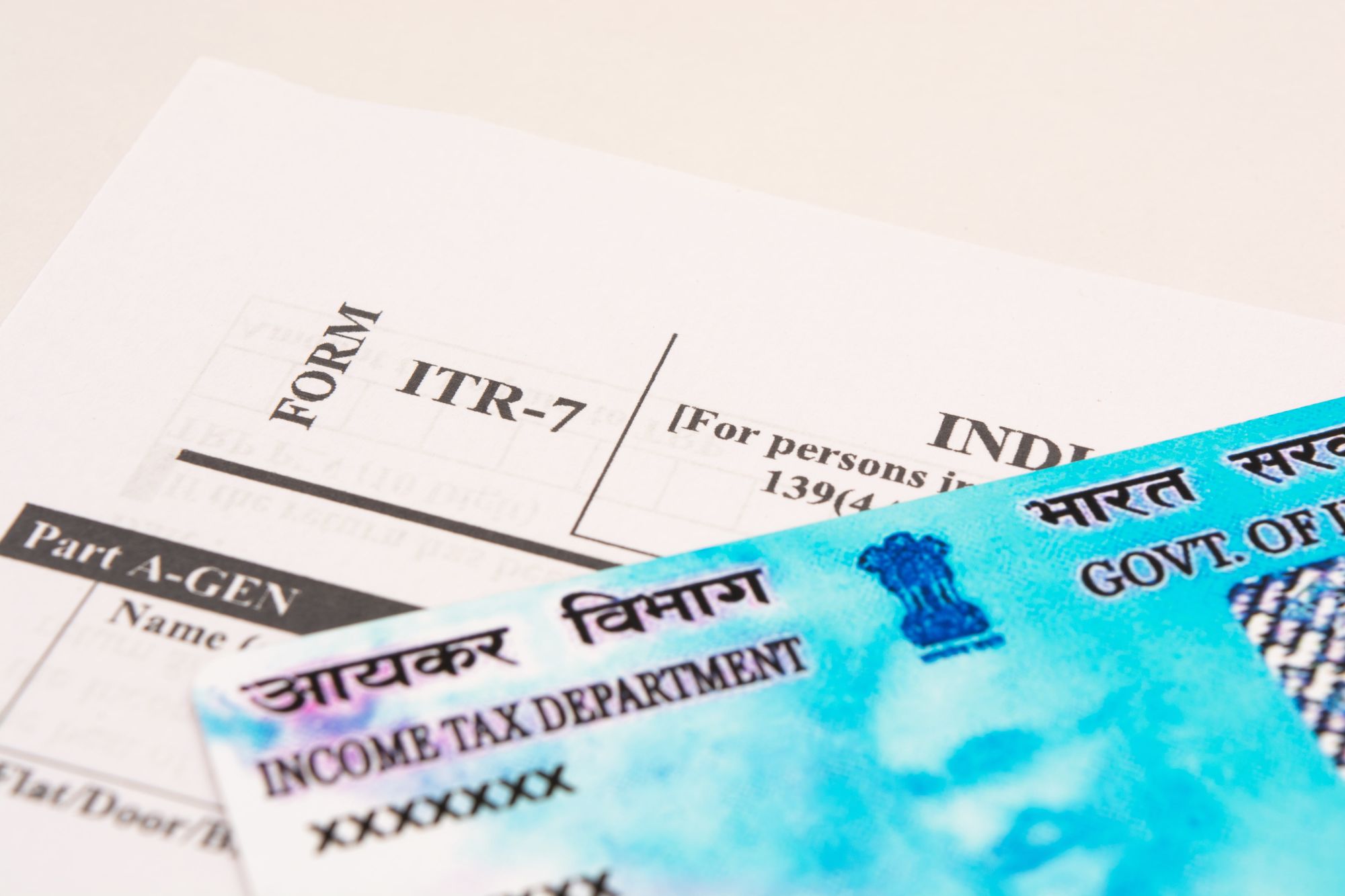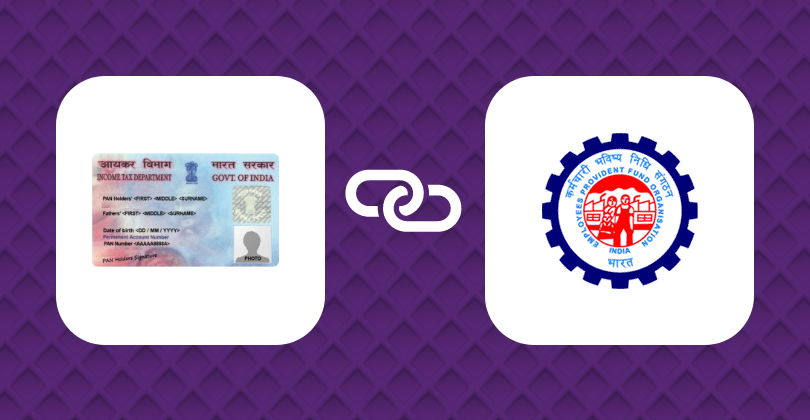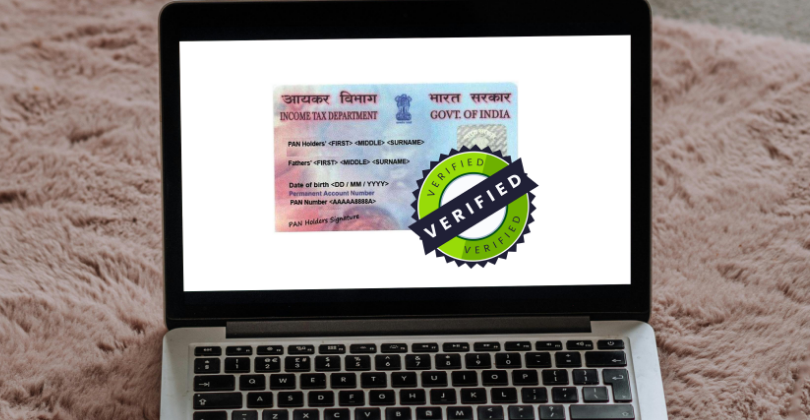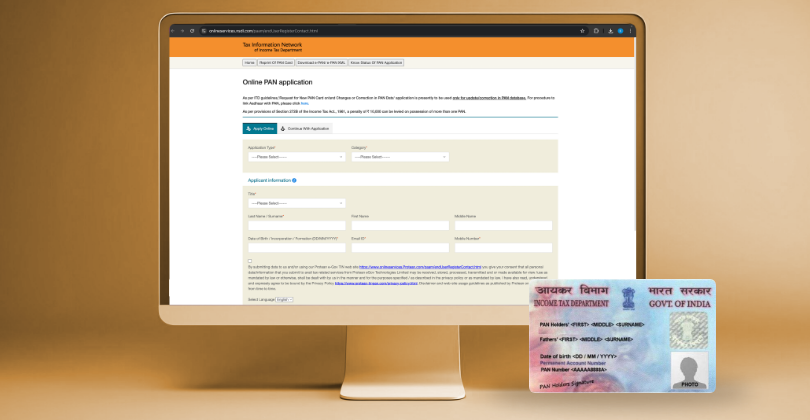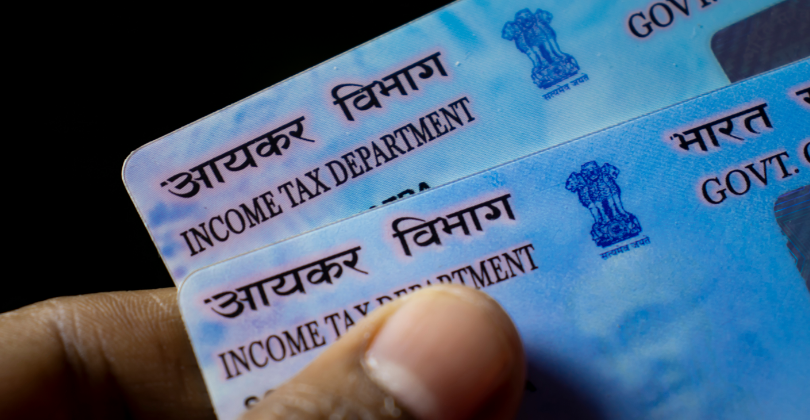Understanding AO codes for PAN cards doesn't have to be complicated. If you're searching for how to find the AO code for your PAN card
Your credit score holds the key to your financial future. Whether you're applying for a personal loan or a credit card, your creditworthiness is shown in a numerical form known as your CIBIL score. Lenders rely on this score to determine your eligibility for credit, and it plays a significant role in shaping the terms of your loan. A good credit score can open doors to favourable loan terms, making it crucial to monitor your CIBIL score range.
In this blog, we will simplify the process of checking your CIBIL Score using your PAN Card for free.
Why Use a PAN Card to Check Your CIBIL Score?
Your PAN Card, with its unique number, serves as a universal identifier for individuals. Additionally, PAN is linked to most financial and bank accounts, making it the ideal tool for credit bureaus to locate your financial details efficiently. When you use your PAN Card number to access your CIBIL score, it's solely for the purpose of verifying your credit information, ensuring its authenticity, and not for any other use.
If you don't have a PAN Card, don't worry; you can still obtain your CIBIL Score by using the identity proof number from your Passport, Voter ID, or Driver’s License.
Does Change of PAN Card Affect Your CIBIL Score?
Issuance of Duplicate PAN card: If you have more than one PAN Card, it's a problem. You should surrender one of them to avoid confusion. Having multiple PAN Cards can mess up your credit history because each PAN Card has its own credit history linked to it. Conflicting credit histories can cause issues. If you lose or damage your PAN Card, don't worry. You can apply for a duplicate at the Income Tax Department, which won't change your CIBIL Score.
Issuance of New PAN card: If you already have a PAN Card, there's no need to apply for a new one. Owning more than one PAN Card is against the law, and the Income Tax Department can take action against you. Your CIBIL Score is calculated based on the loans and credit cards connected to your existing PAN Card. So, applying for a new one won't change your credit score.
How to Check CIBIL Score With PAN Card
Checking your CIBIL score in India using your PAN card is a straightforward process. Here are the steps:
-
Visit the CIBIL website: Open your web browser and go to the official CIBIL website. You can type "CIBIL official website" in your search engine, and it should appear in the search results.
-
Navigate to 'Get Your CIBIL Score': On the CIBIL website's homepage, you'll find a menu or a section that allows you to check your credit score. Look for options like "Check Your CIBIL Score" or "Get Your Credit Score."
-
Click on 'Check Your CIBIL Score': Click on the relevant option to begin the process.
-
Fill in your details: You will be directed to a page where you need to provide personal information. This typically includes your full name, date of birth, gender, email address, and mobile number. Make sure to enter accurate details.
-
Enter your PAN card number: You'll be prompted to enter your PAN (Permanent Account Number) card details. This is a crucial step, as your credit score is linked to your PAN card.
-
Verify captcha or OTP: Complete any captcha challenge or OTP (One-Time Password) verification required to confirm your identity.
-
Submit the form: After entering all the necessary information, click on the "Submit" or "Get Your Score" button.
-
View your CIBIL score: You will now be able to see your CIBIL credit score on the screen. Typically, it's displayed along with a credit report that details your credit history.
-
Download or print (optional): If you wish to keep a record of your credit score and report, you can usually download or print them directly from the website.
-
Logout: For security reasons, it's a good practice to log out of your CIBIL account if you created one during the process.
Please note that while checking your own credit score through your PAN card is usually free, some websites may offer additional services at a cost. Be cautious and make sure you are on the official CIBIL website or a reputable financial institution's website when checking your score to avoid unnecessary fees or scams. Checking your credit score regularly can help manage your financial health.
Factors That Affect Your CIBIL Score
-
Responsible Payment Behaviour
Timely payments for your loan EMIs and credit card bills are vital. Any delays or missed payments negatively impact your CIBIL score. Lenders view your repayment history as a crucial factor when deciding on credit approvals. Defaults within the specified timeline can lead to a significant drop in your CIBIL score. To improve your score, maintain a consistent record of timely repayments.
-
Multiple Credit Applications
Each time you apply for a loan or credit card, a financial institution checks your credit report (a hard enquiry). If you've recently applied for multiple loans or credit cards within a short period, lenders may view your applications with caution. This can signal credit-hungry behaviour and an increase in your debt burden, leading to a lower CIBIL score. To avoid rejection, allow some time before applying for another credit product.
-
High Credit Utilisation Ratio (CUR)
Frequently maxing out your credit card or having a high credit utilisation ratio (CUR) can indicate overreliance on credit, resulting in a heavier repayment burden. This can negatively impact your CIBIL score and reduce your chances of loan approval. It's recommended to keep your Credit Utilisation Ratio below 30% of your total credit limit, demonstrating responsible credit usage.
-
Credit Mix
A balanced mix of secured loans (e.g., home loan, auto loan) and unsecured loans (e.g., personal loan, credit card) can positively influence your credit score. Maintaining a mix between secured and unsecured loans is essential. Opting for multiple secured loans over unsecured loans may gradually lower your credit score.
Conclusion
Checking your CIBIL Score using your PAN Card is easy and can give you valuable insights into your financial health. Your credit score affects your ability to get loans and credit cards, so it's important to keep an eye on it. Remember to use credit responsibly and make timely payments to maintain a good credit score.
Yes, it can. If you have more than one PAN Card, it's a problem. You should surrender one of them to avoid confusion. Having multiple PAN Cards can mess up your credit history because each PAN Card has its own credit history linked to it. Conflicting credit histories can cause issues. If you lose or damage your PAN Card, don't worry. You can apply for a duplicate at the Income Tax Department, and it won't change your CIBIL Score.
If you already have a PAN Card, there's no need to apply for a new one. Owning more than one PAN Card is against the law, and the Income Tax Department can take action against you. Your CIBIL Score is calculated based on the loans and credit cards connected to your existing PAN Card. So, applying for a new one won't change your credit score.
Even though you need to link your PAN card with your Aadhaar, you can't get your credit score using just your Aadhaar number. You still need to provide your PAN card details to generate your credit score.
A CIBIL score of 750 is generally considered a good credit score in India. Lenders often view scores above 750 as a sign of creditworthiness, increasing your chances of loan approval and better interest rates. However, it's important to note that different lenders may have varying criteria for loan approval. While 750 is a good score, striving for an even higher score can offer more favourable loan terms and greater financial flexibility.
AUTHOR
KreditBee As a market leader in the Fintech industry, we strive to bring you the best information to help you manage finances better. These blogs aim to make complicated monetary matters a whole lot simpler.


